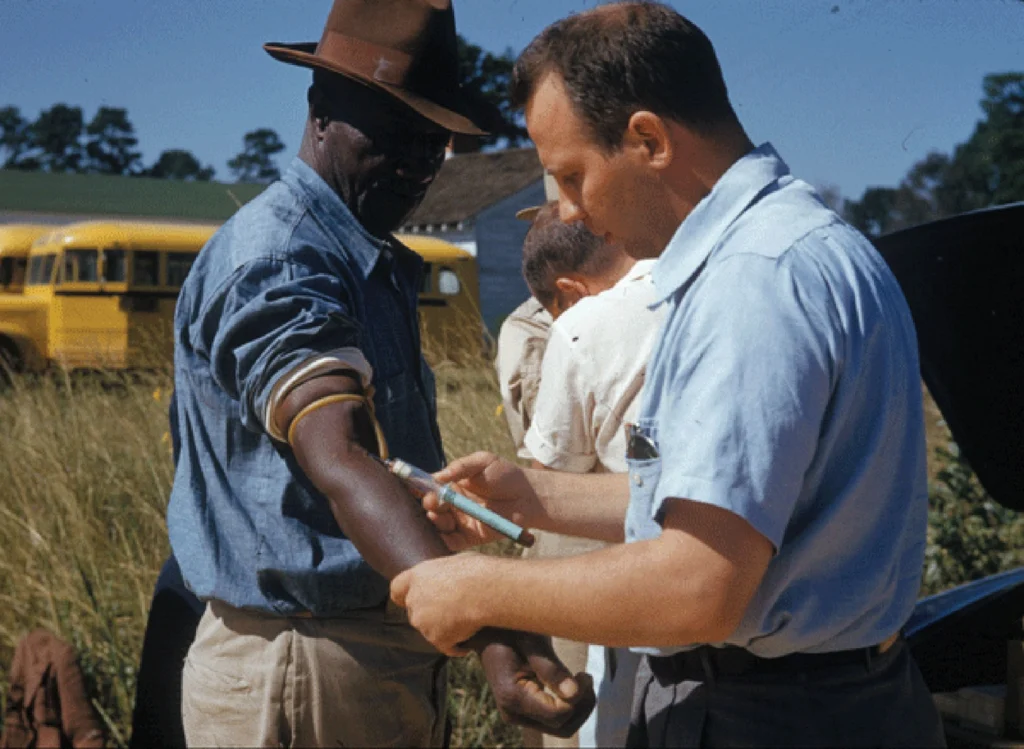Racist Doctors and Organ Thieves: Why So Many Black People Distrust the Health Care System

By JOANNE KENEN and ELAINE BATCHLOR
It’s more than just Tuskegee. Racism still poisons American health care.
One Friday in 1968, a 54-year-old Black laborer named Bruce Tucker fell off a brick ledge, suffering what would prove to be a fatal head injury.
The next afternoon, May 25, his heart was sewn into the chest of a white business executive named Joseph Klett, also 54, at the Medical College of Virginia. It was one of the first heart transplants in the country, and it gave the med school the status it had sought at the forefront of transplant science.
Tucker’s family hadn’t consented. In fact, they didn’t even learn about the transplant until the funeral home in Stony Creek, Va., told them that there was something peculiar about the dead man’s body. It was missing its kidneys and its heart.
The case of the “The Organ Thieves,” as local writer Chip Jones entitled his 2020 book about it, is not broadly known outside Richmond. But it is one of countless incidents across the decades of abusive and exploitative practices directed at, or performed on, Black Americans in the name of science. The most famous, of course, is the “Tuskegee Experiment,” where the government conducted a 40-year study that withheld treatment for syphilis from Black men.
With that kind of history, it should not be surprising that there is still broad distrust in the Black community toward medical professionals. As recently as October 2020, a poll by the Kaiser Family Foundation and Undefeated found 70 percent of Black Americans believe people seeking care are treated unfairly based on race or ethnicity.








